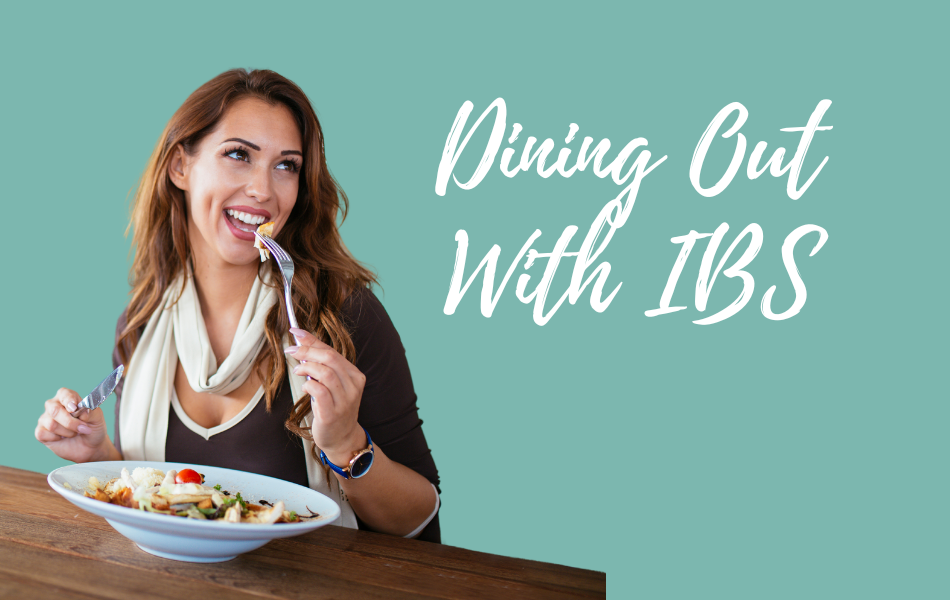Dining Out with IBS: Making Sensible Choices for Gut Health
Dining out can feel like navigating a minefield when you have IBS. It often seems like no matter what you order, you risk a painful, uncomfortable flare-up. And to make matters more confusing, you might eat the same meal twice and only experience symptoms one of those times!
There’s a lot of information out there on managing IBS, but it’s essential to focus on what really works: knowing your triggers, making sensible choices, and understanding that food is both the cause and the solution for most IBS symptoms. Let’s dive into some practical tips and food choices that can help you enjoy dining out without the worry.
The Reality of IBS and Food
Many people believe that they have to “put up with” IBS for the rest of their lives, but that simply isn’t true. I’ve worked with hundreds of clients who have learned to manage their symptoms effectively by making the right food choices. The key is to know what to avoid—like gluten, dairy, and heavy sugars—and what to include, such as plenty of water to keep things moving through your digestive tract.
Top 10 Foods to Enjoy at Restaurants
When dining out, stick to these safe options to help avoid an IBS flare-up:
- Soup: Choose a clear soup without tomatoes, onions, or cream. These ingredients can be problematic for many with IBS. Skip the bread and enjoy the warmth and comfort of a well-made soup.
- Melon: A simple, refreshing starter that’s easy on the gut and helps prepare your palate for the main course.
- Chicken: Chicken is generally safe, but be cautious with sauces, especially those that are creamy or tomato-based. Opt for grilled chicken, chicken salad, or roast chicken with a side of vegetables.
- Potatoes: Potatoes are usually well-tolerated. Baked, roasted, or mashed (without added dairy, except perhaps butter) are all good options. Just ensure no gluten-containing flour or milk is added.
- Salad Leaves: Fresh, green salad leaves are a great choice. Ask for dressing on the side or request a simple oil and lemon dressing to avoid any hidden ingredients that could trigger symptoms.
- Steak: A good steak can be a safe and satisfying option. Avoid creamy sauces and opt for simple sides like mashed potatoes, chips, or a salad.
- Rice: Plain rice is a great staple for those with IBS. Avoid fried rice or risotto, as these often contain dairy or eggs, which can be problematic.
- Vegetables: Most vegetables are safe, but avoid tomatoes and onions if they are triggers for you. A side of steamed or roasted vegetables can add nutrients without upsetting your gut.
- Water: Still or sparkling, water is your best friend. It helps keep your digestive system moving and can prevent constipation. Always drink plenty of water with your meal.
- Fruit: For dessert, opt for fresh fruit or a fruit sorbet. Avoid anything with cream, custard, or ice cream to steer clear of dairy-related flare-ups.
Making Smart Choices Across Different Cuisines
Here’s what to order to feel confident at various types of restaurants:
English / American:
- Stick to simple dishes like steak with mashed potatoes and a side salad. Omelettes with vegetables are also a good option if eggs don’t trigger your symptoms.
French:
- French cuisine often includes meat, potatoes, and salad. Roast duck with fries and a pear salad starter is a great choice. Just be cautious with rich sauces.
Italian:
- Italian food can be tricky due to its heavy use of gluten and dairy. Opt for a grilled chicken salad with bacon and avocado, and avoid pasta and pizza.
Greek:
- Greek food is usually safe, with lots of fresh salads, fish, and olives. Choose a Greek salad (without onions) and a grilled fish main course. Be mindful of cheese, though feta and halloumi are often less problematic than cow’s milk cheeses.
Indian:
- Indian cuisine can be safe if you make the right choices. Try a chicken tandoori with plain rice and skip the naan bread. Avoid creamy curries and opt for dishes cooked in yoghurt instead.
Chinese:
- Chinese food often contains MSG, which can be an irritant. Opt for crispy duck pancakes (if you are not coeliac) and cashew chicken with plain rice. Avoid rich sauces and noodles.
Japanese:
- Sushi is a great option if you tolerate fish and rice well. Stick to simple rolls and avoid soy sauce, which can be high in sodium and aggravate IBS.
Thai:
- Thai food is fresh and flavourful, making it one of the best cuisines for those with IBS. Choose dishes like papaya salad or Thai green curry with plain rice. Just be careful with the amount of onion and ask for MSG-free options.
Final Tips
Dining out with IBS doesn’t have to be stressful. With a little knowledge and careful choices, you can enjoy meals at your favourite restaurants without fear of an IBS flare-up. Remember to stay hydrated, avoid known triggers, and always ask questions about how your food is prepared.
By making smart choices, you can enjoy dining out while keeping your gut happy and healthy.

